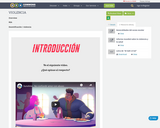
READesmitficación / violencia
- Subject:
- Social Work
- Material Type:
- Activity/Lab
- Reading
- Author:
- Eduardo Ramirez
- Daniel Morales
- Date Added:
- 03/09/2020

READesmitficación / violencia
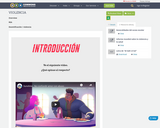
READesmitficación / violencia
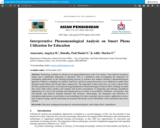
Technology continues to advance at an unprecedented pace in the 21st century; it has made an enormous impact and is undeniably ubiquitous in education. This is a qualitative study investigating the integration of smartphone applications in the teaching-learning process by teachers and students utilizing a phenomenological approach. Purposive sampling was utilized. Interviews and focus group discussions were employed to gather data through Google Sheets and Google Meet, respectively. The transcripts of these interviews, as well as reports from the focus group discussions, were analyzed using Interpretative Phenomenological Analysis (IPA). Findings revealed that senior high school teachers and students had positive perceptions of integrating and utilizing smartphone applications as a tool in the teaching and learning process in terms of accessibility, usefulness, convenience, and user-friendly and effective learning materials and resources. Interestingly, the integration and utilization of smartphone applications in each theme reveal something to be more examined, such as context, application version, lack of phone storage, and the distracting environment that dwells on the inflexibility of the curriculum and course scheme.
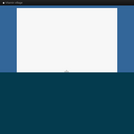
The Vitamin Village is a web-based eLearning package developed between 2001 and 2008 to incorporate vitamins A, C, D, E and K, as well as a basic introduction to antioxidants.
It is mainly used in first year teaching of vitamins, but also in the 2nd and 3rd years of the 3 year BSc (Hons) Nutrition and 4 year MNutr Nutrition degrees taught within the School of Biosciences.
The creation and development involved staff within Nutritional Sciences (Drs John Brameld, Zoe Daniel & Tim Parr and Professor Andy Salter) and the Information Services Learning team.

Il volume rappresenta la tappa finale della prima stagione di implementazione del Progetto ABACUS (giugno 2019 - settembre 2020), sostenuta dal finanziamento pubblico garantito dalla Regione Siciliana e dalla Presidenza del Consiglio dei Ministri. In tal senso, la pubblicazione raccoglie sia una sezione di materiali di discussione critica sul percorso progettuale e sui primi esiti maturati, sia una ricca parte di contributi tematici offerti da referenti istituzionali, studiosi ed esperti, docenti accademici e ricercatori, professionisti e rappresentanti di organismi del Terzo settore Sono state così affrontate ed esaminate differenti tematiche e problematiche socio-culturali e socio-economiche, e prospettive e approcci metodologico-operativi tra loro affini e convergenti, che si sviluppano a cavallo delle politiche sociali, giovanili e culturali, della progettazione sociale e culturale, dell'innovazione sociale e della diversità culturale, in differenti contesti socio-territoriali siciliani e italiani, con una particolare attenzione per quelle iniziative che rappresentano casi paradigmatici in cui le istanze istituzionali, della ricerca, dell'educazione e della formazione si incontrano con le aspettative dei pubblici differenziati e, specialmente, delle giovani generazioni, anche sull'orizzonte della innovazione dell'occupazione giovanile.
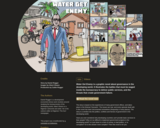
Water Get Enemy is a graphic novel about governance in the developing world. It illustrates the battles that must be waged inside the bureaucracy to deliver public services, and the threats that create government failure.
The story is based on the experiences of many government offices, and takes place in the fictional 'Zanzarim'. The issues are real, and every episode dealt with in the novel has been documented somewhere (frequently in many places). The story is a window into the politics, conflicts and heroes of government in the developing world.
Have you ever wondered why developing countries can't provide basic services to their people? Why is it so difficult to implement government projects in the developing world? Is it just down to a lack of money, to bad politics, or to corruption? Or is the answer more complex? Then this novel is for you.
We have also put together a short worksheet to support the teaching of the graphic novel, available at https://watergetenemy.org/Worksheet%20Template_Water%20Get%20Enemy.pdf
Finally, we have created a bonus chapter on 'sex and statistics' that describes the struggles of sourcing good statistics (and more broadly evidence) on which to make policy, and the struggles of being a women in government in the developing world. This bonus material for educators can be found at https://www.watergetenemy.org/bonusmaterial_sexandstatistics.html
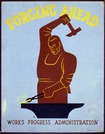
Basic skill development in hand-forging steel, forge welding, scroll-forming, shaping, and joinery utilizing hammers, anvils, and coal and gas forges. Emphasis on techniques and processes to demonstrate versatility and skill.
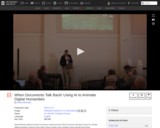
Daniel Michaels (National Institute for Newman Studies) presents 'When Documents Talk Back! Using AI to Animate Digital Humanities' during the Short Talks & Demos session at the Fantastic Futures ai4LAM 2023 annual conference. This item belongs to: movies/fantastic-futures-annual-international-conference-2023-ai-for-libraries-archives-and-museums-02.
This item has files of the following types: Archive BitTorrent, Item Tile, MP3, MPEG4, Metadata, PNG, Thumbnail, h.264 720P, h.264 IA
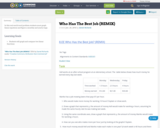
In this real world word problem students must graph linear equations and figure a monthly and yearly wage.
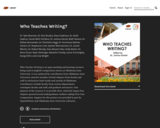
Short Description:
Who Teaches Writing is an open teaching and learning resource being used in English Composition classes at Oklahoma State University. It was authored by contributors from Oklahoma State University and also includes invited chapters from faculty and staff at institutions both inside and outside of Oklahoma. Contributors include faculty from various departments, contingent faculty and staff, and graduate instructors. One purpose of the resource is to provide short, relatively jargon-free chapters geared toward undergraduate students taking First-Year Composition. Support for this project was provided in part by OpenOKState and Oklahoma State University Libraries.
Long Description:
Who Teaches Writing is an open teaching and learning resource being used in English Composition classes at Oklahoma State University. It was authored by contributors from Oklahoma State University and also includes invited chapters from other institutions both inside and outside of Oklahoma. Contributors include faculty from various departments, contingent faculty and staff, and graduate instructors. One purpose of the resource is to provide short, relatively jargon-free chapters geared toward undergraduate students taking First-Year Composition. Support for this project was provided in part by OpenOKState, Oklahoma State University Libraries, and the Claud D. Kniffin Professorship of Library Service and Education.
Word Count: 63162
(Note: This resource's metadata has been created automatically by reformatting and/or combining the information that the author initially provided as part of a bulk import process.)
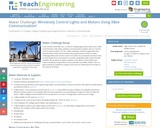
From remote-controlled cars, to sensors relaying agricultural data from a field to farmhouses miles away, wireless communication enables users to “cut the cord” for their projects. For this maker challenge, students apply what they learned about serial communication during the previous Arduino maker challenge (Make and Control a Servo Arm with Your Computer) and learn how to send signals from one system to another using XBee radio communication modules. By activity end, expect students to be able to control LEDs and motors wirelessly using Arduino microcontrollers and XBee shields. This is a great activity for students to explore and come to understand the concept of the Internet of things.
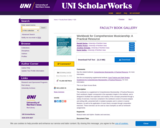
This workbook is a supplement to Comprehensive Musicianship: A Practical Resource. Each workbook chapter corresponds to the equivalent chapter in the textbook, and is designed to facilitate the exploration and mastery of the concepts presented through a variety of exercises. Exercises contained in the workbook consist of musical analysis and writing drills, presented both in isolated examples and in context in musical literature, as well as the application of music theory concepts through composition exercises. These exercises can be used as class examples as well as homework assignments.
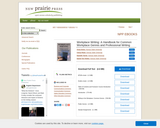
This handbook is designed for a generalized business writing course that seeks to meet the needs of a variety of student majors and career interests. In it you will find: descriptions and discussions of common genres, both routine and formal, print and electronic, and in-class activities and sample assignments. You will also find commentary on how to adapt the writing process to the rhetorical constraints of a workplace as well as how to think about, conduct, and use research outside an academic setting. Throughout you will note a persistent emphasis on audience awareness and direct style.
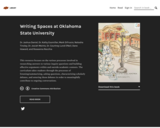
Short Description:
This resource focuses on the various processes involved in researching answers to various inquiry questions and building effective arguments within and outside academic contexts. The curriculum takes students through the processes of listening/summarizing, asking questions, characterizing scholarly debates, and entering those debates in order to meaningfully contribute to ongoing conversations.
Long Description:
This resource incorporates and contextualizes material from Writing Spaces. Writing Spaces is, as Dr. Daniel likes to say, the “OG” of all things commercial-free-textbooks for first-year writing. If terms like “book series” and “peer-reviewed essays” or “by teachers for students” or “free” sound reminiscent of Who Teaches Writing, it is because Writing Spaces was and is the inspiration for Who Teaches Writing. Who Teaches Writing was no brain child of ours, but just the end result of us keeping up with good practice from smart people who have been doing this work for many years. Dr. Daniel had the good fortune to serve as web editor for Writing Spaces for a time, and he knows their work well. While we borrowed their process to create our textbook, this textbook uses existing Writing Spaces articles and organizes them around the English 1213 curriculum, along with abstracts and introductions from our editorial team (you’ll be meeting them in each section) to deliver you another commercial free textbook. Not only is it entirely possible to create free textbooks for FYC students, it has been for a while. This is because, well, Writing Spaces has been at it for a minute; as FYC Director, Dr. Daniel does not believe in unnecessary textbook costs.
Word Count: 12326
(Note: This resource's metadata has been created automatically by reformatting and/or combining the information that the author initially provided as part of a bulk import process.)
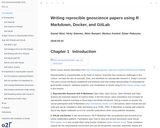
Reproducibility is unquestionably at the heart of science. Scientists face numerous challenges in this context, not least the lack of concepts, tools, and workflows for reproducible research in today's curricula.This short course introduces established and powerful tools that enable reproducibility of computational geoscientific research, statistical analyses, and visualisation of results using R (http://www.r-project.org/) in two lessons:1. Reproducible Research with R MarkdownOpen Data, Open Source, Open Reviews and Open Science are important aspects of science today. In the first lesson, basic motivations and concepts for reproducible research touching on these topics are briefly introduced. During a hands-on session the course participants write R Markdown (http://rmarkdown.rstudio.com/) documents, which include text and code and can be compiled to static documents (e.g. HTML, PDF).R Markdown is equally well suited for day-to-day digital notebooks as it is for scientific publications when using publisher templates.2. GitLab and DockerIn the second lesson, the R Markdown files are published and enriched on an online collaboration platform. Participants learn how to save and version documents using GitLab (http://gitlab.com/) and compile them using Docker containers (https://docker.com/). These containers capture the full computational environment and can be transported, executed, examined, shared and archived. Furthermore, GitLab's collaboration features are explored as an environment for Open Science.Prerequisites: Participants should install required software (R, RStudio, a current browser) and register on GitLab (https://gitlab.com) before the course.This short course is especially relevant for early career scientists (ECS).Participants are welcome to bring their own data and R scripts to work with during the course.All material by the conveners will be shared publicly via OSF (https://osf.io/qd9nf/).
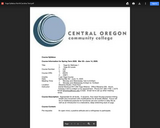
Syllabus for two courses: Yoga for Wellness and Yoga All Levels. Both courses make use of a free online text: https://yoga.dasa.ncsu.edu/
Course Description: Appropriate for all levels. A dynamic, flow-style Vinyasa practice linking breath and movement with modifications for all levels offered. Focus will be on traditional postures for functional use and comfort in daily life as well as an introduction to a restorative, deep-stretching style of yoga.
Learning Outcomes & Course Competencies:
At the completion of this course, students should be able to:
1) Explain the relationship between human behavior and health.
2) Understand the basic concepts of the mind-body-spirit connection.
3) Have a basic awareness and understanding of the historical importance of yoga.
4) Understand the concepts of yoga off the mat.
5) Learn and demonstrate the basic use of yoga props.
6) Learn and demonstrate the basic use of restorative postures.
7) Understand and demonstrate the concept of “intention”.
8) Learn and demonstrate the importance of “safe” yoga postures.
9) Understand and demonstrate basic breathing techniques and how it relates to a meditative state.
10) Show respect for yourself and fellow classmates by contributing to an open, non-threatening, non-judgmental, ego free atmosphere.
11) Understand the concept of “being present”.
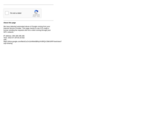
powerpoints of the first seven chapters of the cinema scenes film history text
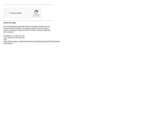
powerpoint presentation for chapters for fourteen through twenty-four
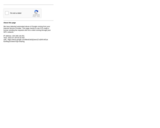
powerpoint presentation for chapters 25-29 for cinema scenes film history text
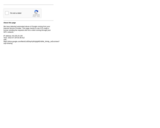
chapter 30-40 powerpoints for cineam scenes film history text